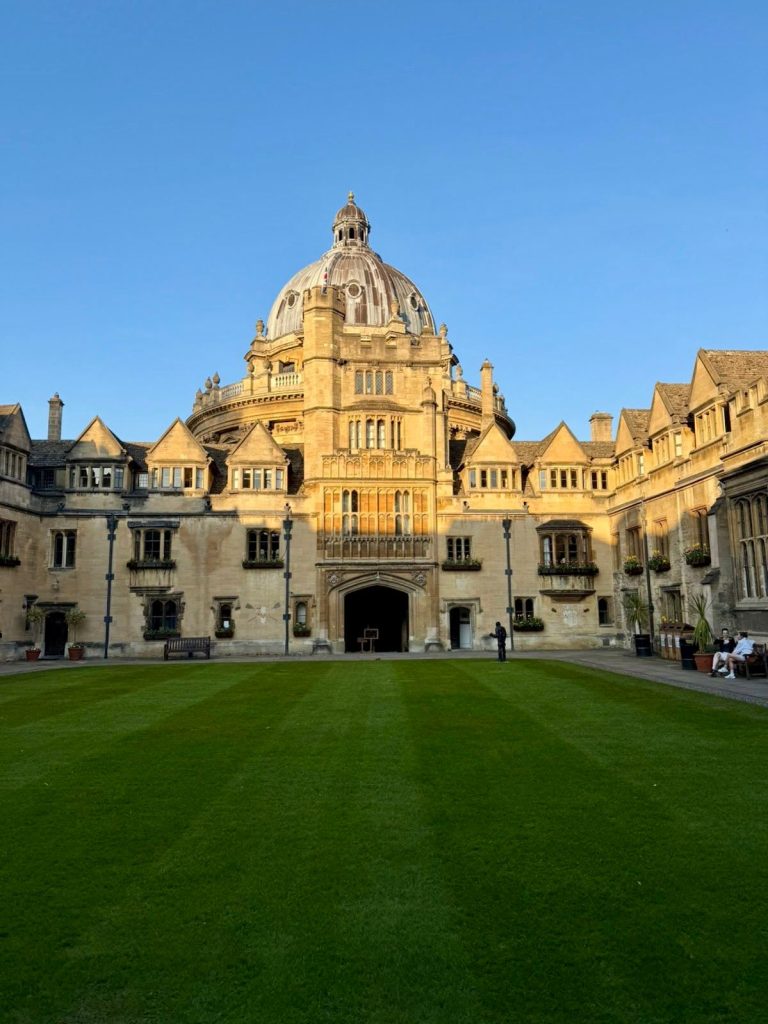I have been watching the investment world for many years now. I have seen it shift, and let me tell you one thing: things are changing fast. When I first started, it was just about the basics: diversifying the portfolio, sticking to your goals, and staying on course.
Of course, these principles are still holding up, but lately, I have seen a new wave of technology that is completely changing how we approach investing.
Now, tools like Artificial Intelligence, blockchain, and even quantum computing are not just buzzwords anymore. I have seen firsthand how these tools give investors smarter ways to analyse markets, manage any risks, and even spot the opportunities we might have missed before.
In this article, let’s discuss what I have learnt about these innovations and how they open new doors for investors like you and me.
The Enduring Principles of Smart Investment
Before we get into all the cool text stuff that has been shaking up the investment world, it is worth visiting the basics of smart investing. These strategies are the foundation, and the new tools just help us supply them in smarter and more efficient ways:
Goal Alignment
This is where it all starts. Our goal is what keeps us going, isn’t it? So I suggest you always ensure that your investments align with what you want to achieve and your goals.
Whatever your investment plan, it should reflect your goals, as well as how much risk you’re comfortable with and how long you plan to invest.
Diversification
It is exactly as the name suggests. It is just like not putting all your eggs in one basket. So that you don’t lose them all if something goes wrong.
In the same way, you should be putting your money across different things like stocks, bonds, real estate, etc. So if one part of the market goes down, your whole money doesn’t go down with it.
Regular Rebalancing
This one is very important, but it is easy to overlook. Over time, some investors will grow faster than others, throwing your original plan out of balance.
Rebalancing is important so that you do not take on more risk than you intended. It’s just a matter of checking in and adjusting things in time.
Dollar-Cost Averaging
Trying to time the market perfectly? I’d say it is pretty much impossible. That is why this strategy is great. All you have to do is invest the same amount regularly. No matter what the market is doing.
Sometimes, you will buy high, sometimes low, but over time, this will help even things out and take a lot of stress out of investing.
How to make these strategies more efficient, investors now have access to advanced tools like stock screeners. These let you sort through stocks based on exactly what you’re looking for, things like earnings growth, P/E ratio, or even market cap, while managing risk effectively.
Innovation Reshaping Financial Markets
Technology is really changing the way we look at and handle investments. It is not just about reading charts or following the news anymore; some seriously powerful tools are shaking things up in the financial world. Let’s know them better:
Artificial intelligence (AI)
Alright, let’s talk about AI first. We all know that it is one of the biggest game changers in investing and everything around the world right now. The hype is real. I mean, it can literally go through massive amounts of data superfast, way more than we could on our own, and actually make sense of it.
AI tools can consider things like news, sentiment, what people say on social media, and even big-picture economic signals. It is truly wild how powerful AI is.
Many big firms, like BlackRock, are already using AI to analyse all that data and make smarter investments. The list doesn’t end here; there are even AI-powered EFTs, like the Amplify AIEQ, that use AI to pick stocks based on many different factors. How amazing is that?
Blockchain Technology
When they hear the word blockchain, most people think of Bitcoin. But I know that it is so much more. You know what the coolest thing about Blockchain is? It’s super secure and does not rely on a single company or middleman. And do you know what its advantage is? It makes it great for cutting costs and making things more transparent in finance.
You know, big bang, like JP Morgan and Goldman Sachs are already using it to speed up how they settle trades. They are basically cutting down the time and money it takes to buy and sell stuff. Isn’t it smart?
We now have things like tokeniser assets, which are digital tokens. Imagine being able to trade stocks or bonds, not through the usual way, but as digital tokens — amazing, right? But you don’t have to imagine it anymore. It is already happening on platforms like Polymath, making everything faster and easier.
Quantum Computing
Quantum computing is still new, but let me tell you, it is super powerful. These computers can crunch crazy amounts of data in no time, which no normal computer can do.
JPMorgan Chase is already testing it to help build better portfolios and make smarter decisions quicker. In the long run, this kind of technology can totally change how we manage risk, catch fraud, and even decide where to invest. Pretty wild, right?
Emerging Market Trends and Investment Opportunities
Now, one more thing. It is not just about new tech. There are also many new trends in the market that are opening up fresh opportunities for us. Let’s have a look:
Sustainable Energy Transition
You know, sustainable energy is one of the biggest and hottest topics in the world right now. In fact, countries like China, India, and Brazil are shifting to cleaner energy. These countries are really stepping up regarding their solar and wind power.
You know what it means? Many new opportunities are opening up for investors. In fact, a report from IRENE says that investment in renewable energy in these markets can reach over $500 billion by 2025.
Now, when we talk about solar and wind power, the whole thing doesn’t just involve solar panels or wind turbines. There is also a big need for a better power grid and energy storage, which are super important to make this whole transition work. This is something that can be a great opportunity.
Biotechnology
What else is getting a lot of attention lately? It’s biotechnology. I have read a lot about it, and there is a lot more money going into stuff like cancer, treatments, and gene therapy. Have you ever heard of CRISPR? It is this crazy gene editing tool that might actually help cure diseases like sickle cell and even some cancers.
Let me tell you a very interesting fact. The gene therapy market was worth around $7.6 billion in 2021, and now they are saying that it could hit $30 billion by 2028.
Now, if you are thinking about getting in early on something big, this might be one area to watch.
Digital Transformation
The way Digital transformation is taking off in emerging markets is really interesting. Many countries, especially those with large young populations, are skipping traditional banking and going straight into mobile-first solutions.
For example, M-Pesa has completely changed how people make payments in Kenya. It is not only about the money. These digital tools are helping people get better access to things like healthcare, education, and even government services.
Space Economy
Oh yeah, and here is something I have been keeping an eye on: Space. The space economy is actually becoming very real. Rocket launch costs are getting cheaper, and satellites are getting more advanced. There are a bunch of new opportunities popping up.
Just think about satellite internet, space tourism, or even using space data for stuff like farming or Weather prediction. The way it can make things happen is super crazy.
In fact, companies like SpaceX and Blue Origin are way ahead in this game. Satellite data services alone are expected to hit around $12 billion by 2027. It is no longer sci-fi; it has become a legitimate business.
Navigating Macro-Economic and Regulatory Shifts
Inflation, Interest Rates, and Geopolitical Events
I learned the hard way that things like inflation, interest rates, and world events can mess with your investments.
For example, right now, everybody is talking about inflation and whether central banks are going to cut interest rates. This news actually changes how people invest their money.
So, keeping an eye on these macro trends isn’t just smart; it’s necessary if you want to stay ahead.
For example, given the way inflation rates are rising globally, it is obvious that investors are now increasingly looking for assets that can help against inflation, such as real estate and commodities.
In fact, in the US, the Federal Reserve has signaled that a cut in interest rates to help with rising inflation is possible, which will influence stock and bond market movements.
Digital Assets
Also, it is wild how fast the rules around investing, especially in crypto, are changing. Like in the US, they have started rolling out things like the CLARITY Act, which is supposed to help clarify and understand how digital assets are classified and regulated. This is a big deal, especially for people who were unsure if crypto was even safe and legal.
Also, in Europe, there is this MiCA regulation now. It basically sets a standard for how crypto-assets will be handled, especially for big investors and institutions.
ESG Investing
Now, EST investing is another big shift. More and more investors want to put their money into companies that care about the environment, treat their people well, and have ethical leadership.
Also, regulations around this whole thing are getting stricter and tighter. Now, companies are being pushed to step up their sustainability game because it is not just good for the planet. It is also becoming good business.
Conclusion
So, in the end, I’ll just say that the world of investment is changing fast, but don’t worry—the basics still work!
The cool part is that now we have all these new tools to help us do it better. They will make it easier for you to make smarter moves with your money.
Because at the end of the day, it is not about chasing the next shiny thing you like. It is about mixing your smart strategy with smart tech and staying ahead of everyone.











